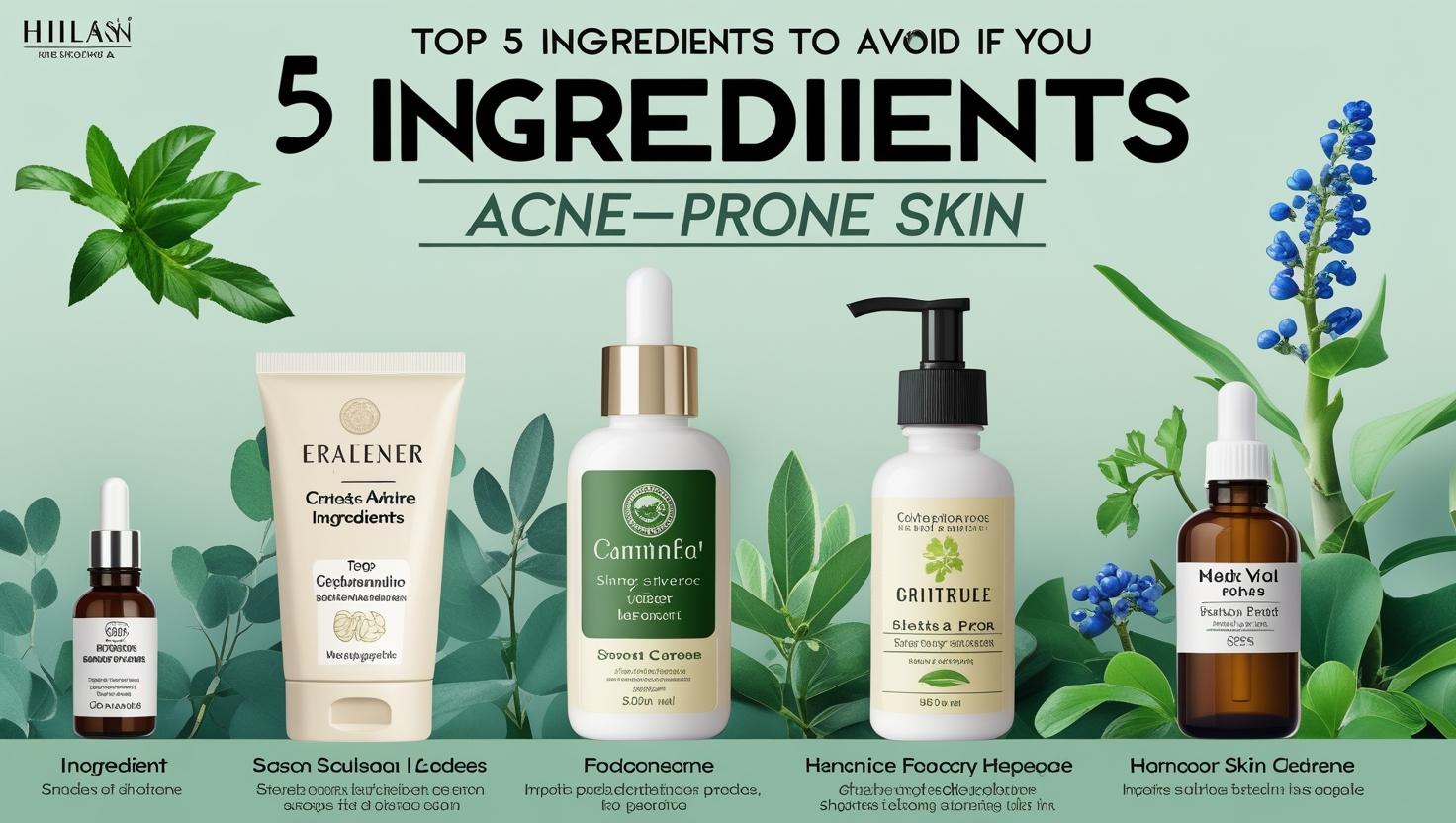Currently Empty: ₨0.00
Introduction:
Acne-prone skin can be a struggle to deal with, and while there are numerous skincare products out there promising to clear your skin, some ingredients can actually make your acne worse. If you have acne-prone skin, it is crucial to pay attention to the ingredients in your skincare products to avoid any potential triggers. In this blog post, we will be discussing the top 5 ingredients to avoid if you have acne-prone skin. So, if you’re someone based in Pakistan who shops on 72shopcart.com for skincare and beauty products, keep reading to make sure you’re not using any of these ingredients on your skin.
1) Mineral Oil:
Mineral oil is a commonly used ingredient in skincare products, especially in moisturizers and makeup removers. It is a byproduct of petroleum and is often used as a cheap filler in skincare products. However, mineral oil is known to clog pores and trap bacteria, leading to breakouts and worsening acne. It also forms a barrier on the skin, preventing moisture from escaping, which can result in dryness and irritation. If you have acne-prone skin, it is best to avoid products containing mineral oil and opt for non-comedogenic (non-pore clogging) alternatives.
2) Fragrances:
Fragrances may smell pleasant, but they can be harmful to acne-prone skin. Most fragrances are synthetic and can contain hundreds of chemicals, which can irritate and inflame the skin. These chemicals can disrupt the skin’s natural pH balance and cause breakouts. Fragrances are often found in skincare and beauty products, such as moisturizers, toners, and makeup. If you have acne-prone skin, it is best to opt for fragrance-free products or ones that use natural fragrances derived from essential oils.
3) Alcohol:
Alcohol is a common ingredient in skincare products, and while it may give a refreshing feeling when applied, it can be extremely drying and irritating for acne-prone skin. Alcohol can strip the skin of its natural oils, leading to increased sebum production, which can clog pores and cause breakouts. It is often found in toners, astringents, and some moisturizers. If you have acne-prone skin, it is essential to avoid products containing alcohol and opt for hydrating and soothing ingredients like hyaluronic acid and aloe vera.
4) Sulfates:
Sulfates are commonly found in cleansers, shampoos, and body washes, as they create a foaming lather that can make you feel clean and refreshed. However, sulfates can strip the skin of its natural oils, leading to dryness, irritation, and breakouts. They can also disrupt the skin’s pH balance, making it more vulnerable to bacteria and acne-causing inflammation. If you have acne-prone skin, it is best to avoid products containing sulfates and opt for sulfate-free alternatives that are gentler on the skin.
5) Silicones:
Silicones are commonly used in skincare and beauty products to give a smooth, silky feel and create a barrier on the skin. While they may temporarily make the skin look and feel smoother, they can clog pores and trap bacteria, leading to breakouts. Silicones can also cause irritation and allergic reactions in some people, making it a problematic ingredient for acne-prone skin. If you have acne-prone skin, it is best to avoid products containing silicones and opt for lightweight, non-comedogenic alternatives.
Conclusion:
If you have acne-prone skin, it is crucial to pay attention to the ingredients in your skincare products to avoid any potential triggers. Avoiding these top 5 ingredients – mineral oil, alcohol, artificial fragrance, coconut oil, and lanolin – can help reduce the chances of breakouts and irritation.


